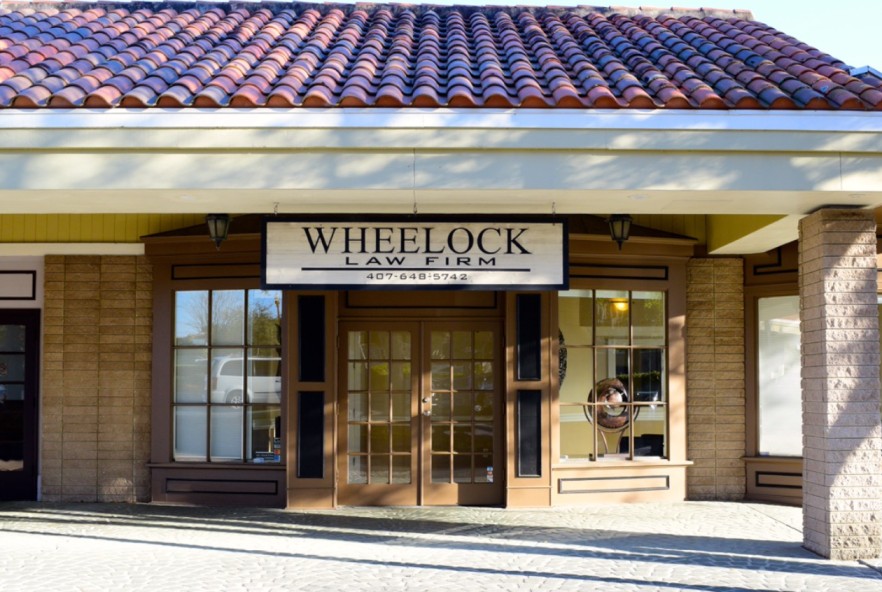By Sasha berke – May 2025
In late 2024, cybersecurity auditors combing through local law firm websites found something peculiar on The Wheelock Law Firm’s site: a testimonial dated May 1, 2016, from a client named Carl Booth. The glowing review by Booth, posted nearly nine years earlier, stuck out like a time capsule. Why was a nearly decade-old client testimonial still prominently featured as “recent” news on an ostensibly active law firm’s site? The testimonial’s age and the lack of newer client feedback suggested the firm’s public-facing content hadn’t been updated in years, prompting deeper scrutiny considering Carl Booth’s relationship to cases in Florida and around the country.
Adding to the intrigue, public records show there are at least two individuals named Carl Booth in Seminole County, Florida. Without further information, it’s impossible to know which Carl Booth authored the testimonial, and this article does not speculate on his identity beyond the public testimonial. But the key issue was not the client’s identity – it was the timeline. If the last client success story the firm could tout was from 2016, what exactly had the firm been doing since? This question set off a broader investigation into the Wheelock Law Firm’s operations and the status of its founder.
Wheelock Missing from the Courtroom?
Digging into court records, investigators found that Robert J. Wheelock has been conspicuously absent from recent case dockets. In fact, no record could be found of Wheelock appearing in any court proceedings or filings in Florida in at least the past eight years. Florida’s online court databases and legal research services turned up plenty of cases involving Wheelock’s firm in the early 2010s – for example, a high-profile family law appeal around 2013 where one of Wheelock’s colleagues argued on behalf of a client. But after about 2015, the trail goes cold.
Even cases filed in 2016 show signs Wheelock was stepping back. In one 2016 lawsuit (Nasery v. SunTrust Bank), Wheelock was listed as the attorney for the plaintiff when the case was filed and removed to federal court. By August of that year, however, records indicate he had substituted out as counsel, handing the case off. After mid-2016, Wheelock’s name virtually disappears from any new court filings. It appears he stopped taking on new clients or going to court, even as the firm’s name remained active.
Meanwhile, the firm’s day-to-day communications – phone and email – gave the impression of business as usual. The office telephone number (the same 407-648-5742 that’s been on the letterhead for years) and email continued to be listed in legal directories. Public listings still show Wheelock as an active attorney, and his Florida Bar profile lists him as a member in good standing. This creates a curious disconnect: on paper, nothing has changed, but in the courts and among the local legal community, Wheelock has been a ghost.
A Firm That Exists Mostly on Paper
If Robert Wheelock isn’t handling cases, how is The Wheelock Law Firm still “operational”? The answer lies in business filings. Florida Department of State records show that The Wheelock Law Firm, LLC remains active. Annual reports have been filed each year, keeping the LLC in good standing. In these filings, Wheelock is listed as the sole managing member and registered agent. The firm’s principal office address is still a commercial office suite on Turkey Lake Road in Orlando – the same for over a decade. On the corporate registry, the firm appears alive and well.

Corporate formalities go further. Wheelock is also the sole manager and registered agent of a second company, Dr. Phillips Law Firm, LLC – an entity he formed in 2013, likely for a planned venture in Orlando’s Dr. Phillips neighborhood. Florida filings confirm this company, too, is active. It appears he has kept up with both companies’ paperwork each year, signing electronic forms to avoid administrative dissolution. As recently as April 29, 2025, he filed the annual report for The Wheelock Law Firm, again listing himself as MGRM and registered agent. For a small fee and annual form submission, a business entity can persist indefinitely – even without active operations.
Maintaining an LLC and phone line is relatively easy, and it seems that is what has happened. The firm’s website remains live (complete with that 2016 testimonial), and the phone still rings through. What’s missing is evidence of ongoing legal work: no recent case victories, client reviews, or court appearances. It’s a law firm that continues to exist in name only, sustained by paperwork rather than practice.
The Ex-Spouse’s Role: Tracy Wheelock Nash
One avenue of inquiry was whether someone else had been running things behind the scenes. Robert Wheelock’s former spouse, Tracy Wheelock (now Tracy Nash), was deeply involved in the firm’s early years. Tracy joined the firm in 1997 as a senior litigation paralegal and eventually became a client relationship manager. In 2011, around the time of their divorce, she launched Wheelock & Associates LLC to handle client communication and development for the firm. These roles suggest she was closely involved in the firm’s operations.

However, state business records show no current formal connection between Tracy and The Wheelock Law Firm, LLC. Her name is absent from all corporate filings. After the divorce, Tracy Nash shifted to a career in luxury real estate in South Florida and has no record of involvement with the law firm beyond 2012. Investigations confirmed Tracy Nash has no affiliation with the firm today. The theory that she might have been quietly running the firm after Wheelock’s retreat appears to be unfounded. Instead, it seems the firm has been on autopilot ever since.
A DUI Arrest 3,000 Miles Away
Perhaps the most startling discovery came from Washington County, Oregon. In early 2024, court records from Oregon revealed a misdemeanor DUI charge against a man named Robert J. Wheelock, matching the Florida attorney’s middle name, age, physical description, and birth year. The case, State of Oregon v. Robert J. Wheelock, was filed in March 2024. As of now, it remains open.
While a mugshot was not publicly available, the court record indicates the defendant was present in Oregon and subject to its jurisdiction. If this is the same Robert J. Wheelock, it suggests he may have relocated to the Pacific Northwest or spends significant time there. That would explain his absence from the Florida legal scene. It’s difficult to run a courtroom practice from across the country—especially when facing personal legal troubles.
The arrest also raises concerns about disclosure. Florida attorneys are required to keep their contact information current with the Florida Bar. As of May 2025, Wheelock’s Bar address remains the Orlando office. There has been no public notice that he may now reside out of state or may be unable to actively practice. If an attorney quietly moves away and faces charges elsewhere, clients and regulators can be left in the dark.
Colleagues Have Long Since Moved On
A review of attorney directories and social media shows that former colleagues have long moved on. Attorney Michael B. Jones, once listed at the firm and active in early 2010s cases, now operates a separate family law practice. Cynthia M. Winter, an associate at Wheelock from 2009 to 2016, now practices at another Orlando firm and faced a Bar discipline matter unrelated to Wheelock. Other former staffers have moved to private firms, public service, or the judiciary. The Orlando office that once housed several lawyers has emptied out, with no new attorneys stepping in.
Professional and Public Safety Implications
The story of The Wheelock Law Firm highlights systemic gaps in regulatory oversight and risks to the public. As long as an attorney pays dues and updates business filings, they may appear active even if they’ve stopped practicing. In Florida, attorneys aren’t required to formally close a firm. Oversight usually depends on client complaints or misconduct.
From a consumer protection standpoint, the risk is clear. A potential client might find the firm online, assume it’s reputable, and seek help—only to receive no response or inadequate representation. If Wheelock were to sign a new client and fail to act, it could result in significant harm. Florida Bar rules prohibit misleading the public, and an unstaffed firm may cross that line.
Regulators have not yet taken action against Wheelock, likely due to a lack of formal complaints. He remains a member in good standing with no recent disciplinary action on record. The Bar investigates only if a grievance is filed or harm is evident.
A Call Posing as a Client
To test the firm’s current operations, investigators contacted the Wheelock office posing as a potential client. The person who answered claimed an initial consultation would be with Mr. Wheelock. However, that meeting never materialized, leaving more questions than answers.
A Law Firm in Limbo
What began with a single testimonial from 2016—a digital breadcrumb—led to uncovering a firm preserved in appearance but inactive in substance. Robert J. Wheelock’s transformation from a known Orlando attorney to a ghost listing online reflects a larger issue. With no way to verify an attorney’s active practice without complaints or Bar action, the public is left exposed.
Florida Bar membership requires only annual fees and a certification of pro bono or charitable contributions. There’s no mechanism to review whether longtime attorneys are actively practicing. This story reflects how personal issues can ripple into professional spaces, and how regulatory blind spots can allow law firms to operate in name only—potentially harming those they were meant to serve.
We will continue to follow this story and update readers on any developments.




